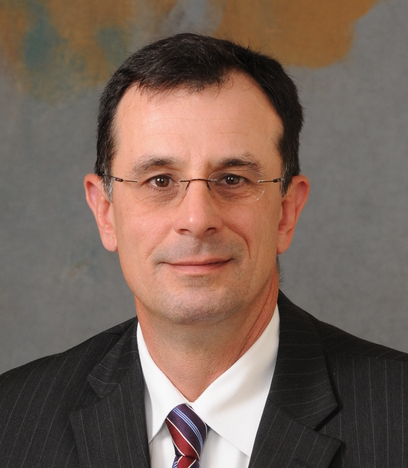NJ Supreme Court Reverses Appellate Decision on Employee Parking Lot Injury
Jan 31, 2022 | Written by: | Share
Last February, I discussed the Appellate Division opinion Lapsley v. Township of Sparta, A0958-19T3 (App. Div. 2021), wherein a Township library employee was injured by a Township snowplow while walking to her car parked in a Township parking lot after completing the workday at the library adjacent to the parking lot. The legal issue was whether the librarian was within the “immediate course of egress” from her employment when struck by the Township snowplow, such that her accident was considered to have occurred within the course of her employment so that she was eligible for workers’ compensation benefits. If entitled to workers’ compensation benefits, she would receive reimbursement of her medical expenses, lost wages, and injuries per the workers’ compensation benefit scale, regardless of fault. Since the plow truck was owned by the Township, and operated by a Township employee, the librarian’s only course of remedy was through a workers’ compensation claim, which statutorily barred her from suing her employer (the Township) or the Township employee plow truck operator for their negligence in causing the accident and damages.
The plaintiff filed both a workers’ compensation claim and a third-party suit against the Township and the Township’s plow operator. The Workers’ Compensation Court found the accident occurred within the scope of the plaintiff’s employment with the Township and the Trial court dismissed the third-party suit as statutorily barred under the Workers’ Compensation Act. The plaintiff appealed and the Appellate Division reversed. The Appellate Division ruled that the librarian’s egress through the township parking lot was fortuitous and too remote from her employment to consider the accident as occurring within the course of employment with the Township. The Appellate Court noted that to hold otherwise could lead to the absurd result that plaintiff’s employment with the Township extended to virtually any situation where the plaintiff was traversing Township property on the way home from work. The Township appealed to the NJ Supreme Court, which reversed and reinstated the findings that the plaintiff’s accident occurred in the course of her employment with the Township, rendering her eligible for workers’ compensation benefits and barring her third-party claims against her employer and fellow Township employee.
In reversing the Appellate Division, the Supreme Court noted the parking lot was owned and maintained by the Township, the Township controlled who was able to use the lot, the lot was adjacent to the library, and the plaintiff and other municipal employees parked in the lot during their work with the Township. Under the circumstances, even though the plaintiff was not required to park in the lot or walk across the lot coming and going to work, the Township exercised sufficient control of the lot to render the plaintiff’s egress through the lot to go home after work of her daily course of employment. The Supreme Court did not specifically address the Appellate Division’s concern that an accident occurring during a municipal employee’s egress from work across any property owned by the municipality employer could qualify as having occurred within the course of employment for workers’ compensation benefits. Diane S. Lapsley v. Township of Sparta (A-68/69-20) (085422) Argued November 8, 2021 -- Decided January 18, 2022.
Last February, I suggested the Township may want to admit the plaintiff’s accident occurred within the course of employment under the belief its exposures for workers’ compensation benefits were less than the potential exposures it faced as a direct defendant in the plaintiff’s third-party negligence suit. To that end, the plaintiff did appeal the trial court’s denial of her third-party suit against the Township that was barred under the Workers’ Compensation Act, and the municipality appealed the Appellate Division’s reversal that permitted the plaintiff to directly sue her employer and fellow employee for negligence. Nonetheless, the Supreme Court’s holding that the plaintiff’s accident occurred within the course of her employment was not based upon an intent to save the public revenue, but was absolutely consistent with the public policy of the Workers’ Compensation Act to ensure employees are promptly and fairly compensated for work-related injuries regardless of fault, and that employers are not subjected to uncertain litigation costs and exposures in exchange.
 Jacob A. Papay, Jr. is a partner with Gebhardt & Kiefer, PC, and practices primarily in the areas of construction defect claims, construction injury claims, first-party insurer claims, insurance coverage disputes, subrogation, provider health care law, commercial law, defense of professional negligence, and public entity general liability. He represents numerous insurers, Third Party Administrators, medical groups, and businesses, and he has successfully defended public entity officials and employers in wrongful death, discrimination, excessive force and other civil rights claims. In addition, Mr. Papay represents small businesses in mergers, acquisitions, trade secrets, employment and unfair trade practice claims.
Jacob A. Papay, Jr. is a partner with Gebhardt & Kiefer, PC, and practices primarily in the areas of construction defect claims, construction injury claims, first-party insurer claims, insurance coverage disputes, subrogation, provider health care law, commercial law, defense of professional negligence, and public entity general liability. He represents numerous insurers, Third Party Administrators, medical groups, and businesses, and he has successfully defended public entity officials and employers in wrongful death, discrimination, excessive force and other civil rights claims. In addition, Mr. Papay represents small businesses in mergers, acquisitions, trade secrets, employment and unfair trade practice claims.
If you have a suggestion for a future blog topic, please feel free to submit it via the Contact Us form.
Any statements made herein are solely for informational purposes only and should not be relied upon or construed as legal advice.
